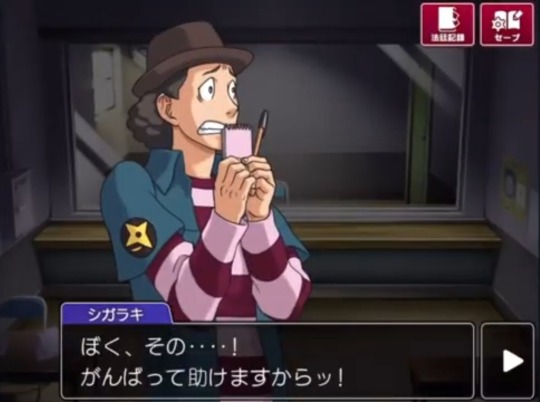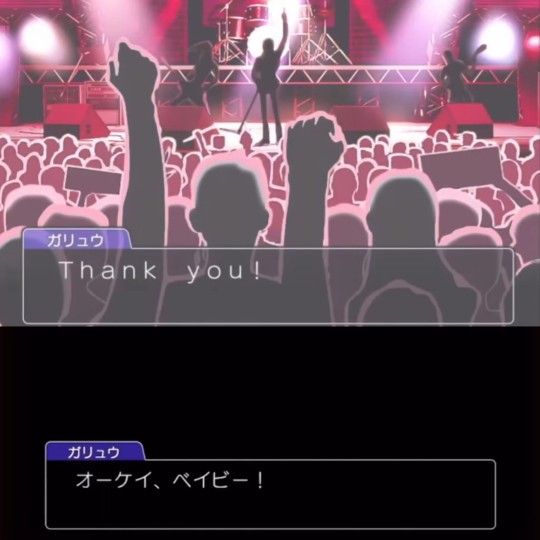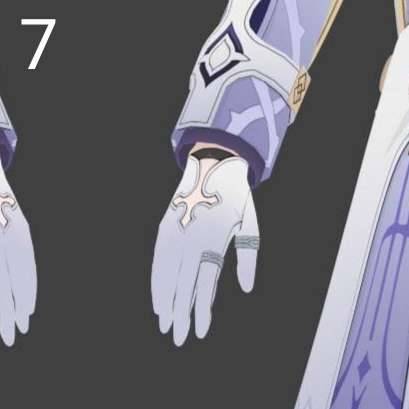#german phrase literal translation
Explore tagged Tumblr posts
Text
Through sheer happenstance my beloved and I both speak German. They’re significantly more fluent than me, having done a year abroad and double majoring in it. But both of us have stories passed down to us of the hilarious cultural misunderstandings present in learning a new language.
One of my German teachers had also spent a year abroad. He had a good grasp of the language but not the nuance. So when he’d closed on his first apartment and his lady got him a good deal he said, “Oh mein Gott, ich liebe dich!” (“Oh my god, I love you!”)
Now in English I love you is a multi-use term applied to friends, family, and for emphasis that you’re very happy, like someone just got you your first apartment.
In German however that phrasing is very specifically romantic. Not even casually romantic, it’s Serious Love. Parents tell their kids “Ich habe dich gern” or “Ich habe dich lieb” (literally “I have you gladly” or “I have love for you”) rather than “Ich liebe dich.” (This is as it was explained to me, don’t @ me it was public school)
So this woman was horrified and creeped out that this strange man, who she was alone in a room with, had pulled the cultural equivalent of declaring his undying love for her and asking her to have his babies.
He was equally horrified to have made such a faux pas when he realized how upset she was and profusely apologized. She understood better when he explained he was American.
A silly bonus story was that in that class we pranked one of the girls into thinking “Baum” was slang for cool. It just means tree. She’d be like “Das ist so Baum!” (“That is so tree!”) It went on for a few months before the teacher corrected her.
The next story is one of my favorites. My beloved heard from her teacher of a woman who had hosted a German exchange student for a while. At one point the girl came up to the her host mom to ask, “Where can we go buy a rubber? My sister collects them.”
“A rubber? She collects them??”
“Yes, can we buy her one?”
The woman was shocked that her exchange student was asking for a condom. But, she told herself, cultural norms were different, and she knew that German teenagers were given more sexual freedom. So, trepidatious but determined, she drove the girl to a local sex shop.
The girl, in turn, was horrified when they arrived. Most German student learn British English instead of American English and they call erasers rubbers.
The translation error made her host mom think she was asking for condoms when she just wanted a cute eraser and they both ended up embarrassed, surrounded by dildos.
2K notes
·
View notes
Text
Self-addressing of minor male characters in Ace Attorney (Gyakuten Saiban) / Personal pronouns
We've talked about the main male and female characters, but we shouldn't forget about the minor male characters who accompany us throughout at least each part of the Ace Attorney (GKS) series
The first man who accompanies us throughout the first trilogy is Itonokogiri Keisuke (Richard/Dick Gumshoe)
And here's an interesting point. His pronoun is "jibun" (自分)

自分は、刑事課の イトノコギリという者ッス。
Jibun wa, keiji ka no Itonokogiri to iu mono ~tssu.
I'm from the Criminal Affairs Division. My name is Itonokogiri.
This is a rather rarely used pronoun; it literally translates as "self", although it has the meaning "I/me".
Jibun is used by about only 14% of men and 1% of women. This fact makes the pronoun gender-neutral, but predominantly masculine.
Compared to other first-person pronouns, the nuance of 自分 is introspective, and it's often associated with the military or athletic community, which have strong hierarchies. This suits Itonoko's personality very well, considering that he is a subordinate of the prosecutor and rarely thinks for himself.
Also, "jibun" can be an indicator of the Kansai dialect (Osaka), where it is used to denote both the first and second person. But, since Itonoko's speech was not noted to have any dialect (there are other features), and he was born and raised in the same city (and the city is from the Kanto region), this option is out of the question.
Interestingly, even after Itonoko realized that detectives should do their own investigations rather than rely on directions from prosecutors, and began making decisions on his own, his self-address did not change. Probably a matter of habit.
自分は、何をしたらいいッスか・・・・
Jibun wa, nani o shitara Ī ~tsuu ka...
What should I do...
___________________________________________
Next is our dear friend's father, Mitsurugi Shin (Gregory Edgeworth)
His speech is very formal (like his son's), and he uses the formal personal pronoun "watashi" written in kanji.

私は弁護士の御剣信と申します。
Watashi wa bengoshi no Mitsurugi Shin to mōshi masu.
My name is Shin Mitsurugi, a lawyer.
___________________________________________
Let's not forget about Mitsurugi assistant - Shigaraki Tateyuki (Eddie Fender, almost wrote Raymond Shields)
Most of his dialogues take place with Mitsurugi and young Yatagarasu, and he stubbornly continues to call himself "uncle". (オジサン - ojisan)

オジサン、アトでここの館長に 文句言っとくから。寒すぎだって。
Ojisan, ato de koko no kanchō ni monku I~tsu toku kara. Samu sugi datte .
Uncle going to complain to the director of this place later. It's too cold.
It was not easy to catch his personal self-addressing with other people, but not impossible.
In dialogues with others, Shigaraki-san uses the polite male pronoun "boku" (like Naruhodō/Wright)

ぼく、その・・・・! がんばって助けますからッ!
Boku, sono! Ganbatte tasuke masu kara ~Tsu !
I, well...! I'll do my best to help you!
___________________________________________
Let's not forget about our permanent presiding judge (here is someone who, with rare exceptions, is always with us)

ええ!わ、私がですか?
ē! Wa, watashi gadesu ka?
What? Me?
___________________________________________
The new generation is first represented by rock star and hard-working prosecutor - Garyu Kyoya (Klavier Gavin)
Despite his prominent image as a musician and rock star, Kyouya uses the polite masculine pronoun "boku" (the same one used by Naruhodō/Wright).

ぼくも楽しみにしているんだ。
boku mo tanoshimini shite iru nda.
I'm looking forward to it too.
His speech is generally polite, and in the original he uses various English phrases in his speech, written either in Latin or Katakana. These phrases, by the way, are often used at concerts of musical groups whose first language is not English. (In the localization, as you know, German was used as a substitute).

オーケイ、ベイビー!
ōkei, beibī!
Okay, baby!
___________________________________________
Mr. Garyu Kirihito (Kristoph Gavin) uses the personal pronoun "watashi", which is written in kanji, indicating formal speech and an adult character.

___________________________________________
The second prosecutor from the new generation is a master of psychological manipulation, Yugami Jin (Simon Blackquill)
To be honest, his image as a samurai somewhat clouded my eyes, and I expected some self-addresses inherent in this category (for example, "yo")
But no, Yugami-kun uses the crude male pronoun "ore" (like Odoroki/Apollo)

それと、俺は検事ってェ立場上、 おめえさんに手は貸さねェからな。
soreto, ore wa kenji tte ~e tachiba-jō, o-me e-san ni te wa kasa nēkara na.
Also, because I'm a prosecutor, I won't help you.
We don't know when he started using this designation (there are no monologues from him before his arrest), but judging by his characterization from other characters, he behaved very noble and politely, so perhaps he could change the personal pronoun to a more rude one to maintain the image of a "cruel criminal".
His manner of speech is, in principle, extremely interesting, and, I think, worthy of a separate post. In short - he speaks in a dialect + uses obsolete words + he has a special way of addressing other characters
___________________________________________
The third prosecutor from the new generation, who is also a monk from the kingdom of Khurain - Sahdmadhi Nahyuta (his name was not localized, thank you)
But this young man has an extremely interesting way of addressing himself.
"Sesso" (拙僧) literally means "inept monk".
This is a VERY modest form of address that was used by Buddhist monks.

拙僧がこの事件の担当に ふさわしくないと・・・・?
sessō ga kono jiken no tantō ni fusawashikunai to?
Are you saying I'm not fit to take charge of this case...?
But, this is very different from his speech. Canonically, he is a foreigner, so he does not know all the features of the language in which the hearings are held. Therefore, Nahyuta uses, either unknowingly or intentionally, quite rude vocabulary and manner of speech (at the first hearing with him as a prosecutor, the judge, Odoroki and Kizuki were shocked). Even a native speaker, whose walkthrough I watched, was surprised and commented on this moment.
___________________________________________
Well, that's probably it for now on the topic of personal pronouns, but if you're interested in someone specific that I haven't mentioned, give me a sign.
#ace attorney#gyakuten saiban#gyakuten kenji#itonokogiri keisuke#dick gumshoe#tateyuki shigaraki#eddie fender#raymond shields#mitsurugi shin#gregory edgeworth#garyuu kyouya#klavier gavin#garyuu kirihito#kristoph gavin#yugami jin#simon blackquill#nahyuta sahdmadhi#ace attorney investigations#garyu kyoya#in the GKS universe together with croq
213 notes
·
View notes
Text
Writing Notes: Halloween

REFERENCES (Banshee; Ghost; Ghoul; Goblin; Haunt; Specter; Vampire; Wraith; Origins of Halloween)
Banshee
A female spirit in Gaelic folklore whose appearance or wailing warns a family that one of them will soon die.
Banshee came from combining the Gaelic words meaning “woman of fairyland,” but any positive associations with fairies ends there.
Are female spirits that, if seen or heard wailing under the windows of a house, foretell of a death in the family that lives there.
Today, the word is most frequently heard in the idiom “scream like a banshee” or “wail like a banshee,” which shows the power of myth and the imaginative power of language, since probably no one has actually heard one.
Ghost
Most common meaning today is “a disembodied soul” or “the soul or specter of a deceased person”, which came next, a meaning based on the ancient folkloric notion that the spirit is separable from the body and can continue its existence after death. It originally meant “vital spark” or “the seat of life or intelligence,” which is still used in the phrase “give up the ghost.”
An older spelling of ghost, gast, is the root of aghast (“struck with terror, shocked”) and ghastly (“frightening”).
The German word for ghost, geist, is part of the word zeitgeist, which literally means “spirit of the time.”
Ghoul
A legendary evil being that robs graves and feeds on corpses.
Ghoul is a relatively recent English word, borrowed from Arabic in the 1700s.
Because it’s spelled with gh-, it looks vaguely like the Old English words ghost and ghastly (which share a common root in the Old English word gāst, meaning “spirit” or “ghost”).
In fact, it comes from the Arabic word ghūl, derived from the verb that means “to seize,” and originally meant “a legendary evil being held to rob graves and feed on corpses.” The word was introduced to western literature by the French translation of Arabian Nights.
Goblin
An ugly or grotesque sprite.
Usually mischievous and sometimes evil and malicious.
Haunt
To visit or inhabit as a ghost.
However, this is not the original sense of the word.
For centuries, it had a perfectly unfrightening set of meanings: “to visit often” and “to continually seek the company of.”
In the 1500s, it began to mean “to have a disquieting or harmful effect on,” as in “that problem may come back to haunt you.” The meaning here is simply the lingering presence of the problem, not the possibly scary nature of the problem itself; it is applied to thoughts, memories, and emotions.
The noun haunt retains this fright-neutral definition, “a place that you go to often,” as in “one of my favorite old haunts.”
A lingering idea, memory, or feeling may have led to the ghostly meaning of haunt, or one by a disembodied or imaginary spirit.
Specter
A visible disembodied spirit.
Specter originally meant “a visible disembodied spirit” in English—a good synonym for ghost. But, unlike ghost, the notion of being visible is paramount in specter, which came to English from the French word spectre, which developed directly from the Latin word spectrum, meaning “appearance” or “specter,” itself based on the verb specere, meaning “to look.”
Specere is also the root of many English words that have to do with appearance: aspect, conspicuous, inspect, perspective, and spectacle.
Vampire
The reanimated body of a dead person believed to come from the grave at night and suck the blood of persons asleep.
Legends of bloodsucking creatures go back to Ancient Greece, with harrowing tales of them rising from burial places at night to drink peoples’ blood before hiding from dawn’s daylight. These stories were popular in eastern Europe.
Originally comes from the Serbian word vampir, which then passed from German to French, coming to English in the 1700s.
The extended senses of vampire, “one who lives by preying on others” and a synonym of vampire bat, were both in use within a few decades.
Wraith
The exact likeness of a living person seen usually just before death as an apparition. The distinguishing quality of a wraith, compared with other ghosts, is its specificity.
Originally, it referred to either the exact likeness of a living person seen as an apparition just before that person’s death as a kind of spectral premonition of bad news, or a visible apparition of a dead person.
When referring to a living person, it’s a synonym of doppelgänger, or the “spirit double” of a living person (as opposed to a ghost, which refers to the spirit of a dead person). Doppelgänger is now frequently used in a broader sense to mean simply “someone who looks like someone else.”
When referring to a dead person, wraith is a synonym of revenant, which originally referred to a ghost of a particular person and subsequently has been used for a person who returns after a long absence.
ORIGINS OF HALLOWEEN
The traditions of Halloween have their origins in Samhain, a festival celebrated by the Celts of ancient Britain and Ireland.
Samhain marked the end of summer and the onset of winter, and occurred on a date that corresponds to our November 1st.
It was believed that during the Samhain festival, the world of the gods was visible to humans, and the gods took advantage of this fact by playing tricks on their mortal worshippers. Those worshippers in turn responded with bonfires on hilltops and sometimes masks and other varied disguises to keep ghosts from being able to recognize them. Things tended to get spooky and dangerous around Samhain, with bloody sacrifices and supernatural phenomena abounding.
Samhain chugged along for centuries, until Christianity poked its nose in: in the 8th century CE, All Saints' Day, a somewhat new Christian holiday, got moved from May 13th to November 1st.
The evening before All Saints' Day became a holy—that is, a hallowed—eve. Within a few centuries, Samhain and the eve of All Saints' Day had been merged into a single holiday. Protestants of the Reformation and all that came after largely rejected the whole thing, but the holiday persisted among some communities.
19th-century immigrants to the U.S., including many from Ireland, brought their Halloween customs with them and deserve no small amount of credit for the holiday as it's celebrated in the U.S. today.
More: Writing Notes & References ⚜ Word List: October
#writing notes#halloween#writeblr#langblr#linguistics#creative writing#writing prompt#history#words#lit#dark academia#writers on tumblr#poets on tumblr#poetry#spilled ink#writing#studyblr#word list#grandma moses#writing reference#writing inspiration#writing ideas#writing resources
214 notes
·
View notes
Text
Fansub Release + Analysis of Utena Ep 14
This is a big one!!

My fansub release posts aren't usually like this, but this episode is so jam packed with stuff I want to talk about that I had to write my translation notes as a series of essays. It's longer than usual so strap in!
First, a word on “The Mikage Seminar”
I’ve always found the translation “the Mikage Seminar” very strange. In English, a seminar is an event — a lecture. Yet “the Mikage Seminar” is discussed as though it’s not a recurring lecture, but a society or a school of therapy, or a cult (like scientology). In fact I did a bit of reading about scientology to try and find an alternative translation, and discovered that the origins of scientology, namely a set of ideas and practices called Dianetics, bears a lot of similarities to “the Mikage Seminar”. Both involve a type of therapy where one person looks into their mind and talks to an “auditor”.
The auditor coaxes the preclear to recall as much as possible. — Wikipedia
This in particular stood out to me! Mikage often says 「深く。もっと深く」 during his interviews (”Deeper. Dig deeper.”).
The Japanese word ゼミナール doesn’t actually come from the English “seminar” but the German “Seminar” (capitalised). According to Wikipedia, in Germany, and often in Japan, Seminar/ゼミナール is used to refer to a university course that includes a thesis project. So ゼミナール refers to a course of learning, rather than a talk or lecture. And it would make a lot of sense to call a system like Dianetics a “course”. Almost like a “course” of medicine — a “course” of psychological practices that you can join but never complete.
So it would make sense to translate it as “the Mikage Course”. But “course” has more meanings in English than just this, and in the context of a university this makes it sound more like a mundane teaching course. So I tried some other words: the Mikage Sessions, the Mikage Method, Mikage Psychotherapy, Mikage Therapy, the Mikage Movement. None seemed quite right. Until I remembered this post. ゼミナール is a foreign word in Japanese, why not find a foreign word for the translation? And so I settled on this:
The Mikage Seminarium, AKA The Society of the Black Rose…
Seminarium is Latin, and is where both the German and English derive seminar from. Its original meaning is “seed plot”, but it’s also just the Polish word for seminar. I really like how the Latin makes its meaning ambiguous — it kind of sounds like a location, kind of sounds like a society, and kind of sounds like a learning course. Because it is all of these things.


Anthy: では、香苗さん。失礼します。 Kanae: ね、あたしの事、お姉さんって呼んでいいのよ。もうすぐわたしはあなたの本当のお姉さんになるんだから。
A more literal translation:
Anthy: Thank you for having us, Kanae-san. Kanae: Please… you can just call me “sister”. I���m going to be your real sister soon enough anyway.
The translation I ended up going with:
Anthy: Thank you for having us, Miss Ohtori. Kanae: Please... you can just call me Kanae. We're going to be family soon. There's no need for the formalities.
Japanese honorifics strike again!
In English, sisters-in-law don’t ask to be called “sister”. That would be super weird in most scenarios, and this scene is trying to evoke a particular familiar feeling of closing a distance gap in a relationship. The audience is meant to relate. Changing how Anthy addresses Kanae was pivotal to this scene working properly.


わかりました。あなたは世界を革命するしかないでしょ。
I understand. Your only choice is to force the world to change around you.
This line is translated as “Your only choice is to revolutionise the world” by basically every other translation. The reason is clear — the Japanese is the same as when Utena pulls the sword out of Anthy, or when any of the other characters talk about “revolutionising the world”. However, in this context, I don’t like it. The nuance of the English phrase is quite different to the Japanese phrase. In English, it’s often used to describe new commercial products: “This new device will revolutionise the world!” It comes with an implied “for the better”, but has used to describe technological developments so unexciting that it can also feel hollow. When the student council talk of revolutionising the world, they sound like revolutionaries — the context makes it work. But in this context, it comes out of nowhere and doesn’t have any of that fervour, which makes it sound hollow and flaccid when it should sound sinister and manipulative.
I think a pervading throughline for all the Black Rose duelists is that they see their problems as caused by other people, with themselves being blameless. Rather than change how they approach their situation, Mikage tells them they’re in the right.
Your behaviour will set you down a path. If that path leads to your goals, well done! However, if your path does not lead to your goals, there’s only two ways you can achieve them.

The first is to change your behaviour so that it does align with your goals. The second, impossible way, is for the rest of the world to change such that your current path DOES end up leading to your goals. This second way is not possible in the real world. But it is possible in Utena.

Also I’ll just leave this here: “around you” → “revolve” → “revolution” 👀
Kanae tried to build a relationship with Anthy in a passive, non-confrontational, extremely Japanese way — the way she has been taught to behave, the “proper” way, a mechanical following of the social scripts. We don’t see a lot of their relationship, but the way she behaved and spoke of behaving towards Anthy is very very similar to the way my Japanese grandmother has behaved towards my and my brother’s partners.
It was unthinkable to her to change this pattern of behaviour. Her only choice was to change Anthy, change the rest of the world, so that her behaviour would lead to the outcomes she wants. You could describe this forceful bending of reality to be “revolutionising the world”.


この黒薔薇のある限り、私はこれから嘘の私を演じなくて住む。
As long as I have this Black Rose, I'm free from the lie I was living before.
Besides gender, growing up, and resisting change (which exist as separate themes but also all intertwine as one), another major theme present in Utena is the self and subjective reality. The self is explored within those first major three themes, but also in terms of how the self dictates reality with the Black Rose duellists.
Black Rose Kanae says that her past self was a lie.
It reminds me of all the times when I’ve been going through a personal trial and I’ve looked back on my past self and thought “How naive I was. I understand things better now.” And then after a while I realise I was wrong, and my first self was more right. And then later still, maybe I re-realise that the second self was more right! And so on! The reality of truth (or to use Kanae’s language, “lies”) is so subjective.
Who dictates knowledge production? Who decides what is true; what is valid knowledge? This is a question of sociology - and at the moment that answer is "science does, kinda". But science and academic systems are supported by capitalist structures and tainted by capitalistic incentives — needing to be published in a journal, issues of replicability, the barrier to entry into academia in the first place, etc, etc. In the future we may find our current way of organising knowledge to be archaic and primitive in the same way we look back at medieval scholars.
But what about organising self-knowledge? Knowledge where the only one who can really decide what is true is yourself. And the only one that can decide what yourself even IS is yourself. I feel like I have looked back on my old ways of conceptualising myself many times (not even counting the gender-based revelations) and thought it primitive and archaic, and NOW I truly understand who I am and how to think of myself and how my thoughts interact with my other thoughts. But I have no doubt that I’ll look back on this current self of mine and reject their way of thinking too.
After their heart is replaced by the Black Rose, the duellists themselves frame this change as a moment of self realisation, of clarity. Once the rose is inside them, they wake up from themselves, like I have countless times. Kanae says herself, “This is the true me.” Honestly, I don’t doubt it. I think that version of Kanae was her true self at that moment, given the things influencing her. Being brainwashed doesn’t make you less of a person, or less yourself. It just makes you organise your reality differently.


心を凍結させて作っただけの間に合わせのデュエリストでは、彼女は破れないな。
We won't be able to defeat her by simply freezing someone's heart and forcing them to duel.
Anya and I discussed this in depth. I originally translated 心 as “mind”, because that was the first thing that popped into my head and I thought that was the simple part of the translation. However, Anya pointed out that it didn’t make sense with the themes of self and subjective reality, and I strongly agreed, so I changed it to “heart” instead.
Anya suggested “conscious mind” instead of “heart” but I think heart is more accurate. 心 (kokoro) can mean heart or mind in Japanese (I find it interesting that those two things are portrayed as opposites in English), and that kanji is found in the word for biological heart, 心臓 (shinzou). When they say of the Black Rose "This is your new heart" they use 心臓. They also say "Your new 命 (life/lifeforce)" which I translated as soul since it sounded more hardcore and because "your new life" is a set phrase in English meaning a new chapter in your life rather than your life force. I think the idea is that they're freezing the duellists' ability to love and feel empathy, which in my opinion is necessary for them to commit to the unbelievably selfish act of revolutionising/reconstructing/bending the entire structure of the world for their own convenience.

A very special thanks to @dontbe-lasanya for being there to talk through all these themes and ideas. I'm incredibly proud of this episode's translation and I wouldn't have been able to do it without them.
If you want to see more analysis like this, let me know! And also follow this blog to see episodes of the fansub as they're released. You can find all episodes released so far here:
Rose divider taken from this post
#revolutionary girl utena#rgu#shoujo kakumei utena#sku#utena#media analysis#utena analysis#translation#japanese#japanese language#langblr#official blog post#utena fansub
166 notes
·
View notes
Text
my favourite german phrase will always be "fick dich ins knie", which is used to mean something like "go fuck yourself", but literally translates to "fuck yourself in the knee". the image it conjures is just delightfully nonsensical. like, how would you even go about fucking yourself in the knee? pretty sure that's physically impossible.
#german#deutsch#deutsches zeug#german stuff#there might be some actual etymological explanation behind it or whatever but i haven't researched it
1K notes
·
View notes
Text
So, I’m watching TOS in the German dub and there’s this scene in “A Piece of the Action”:

Kirk is pointing at Spock and says “Hey you, sit down!”
A perfectly innocent, uncomplicated phrase that can very easily be translated into German. There wouldn’t be too many syllables to match it to the movements of Kirk’s mouth either. There’s literally no reason whatsoever to translate it to:
"Na du Süßer, komm, setz’ dich!”
Which translates to: “Hey you, sweetie, sit down!”
I have no idea what happened there, but I like it.

2K notes
·
View notes
Text
all the symbolism of sunday i gathered before his release as a playable character.
while reading this, keep in mind that this may not be the same as his new character design. thank you for reading and enjoy!! point out mistakes, or anything i missed in the comments!! ♡♡ i'll probably make a separate post for his new design as well someday.

the thorny vine patterns on his clothes: Jesus is called "the true vine" of God, but he was also given a crown of thorns when he was crucified.
thorns (we can see them on sunday's design) were created as a punishment for the first sin.

there are eyes placed throughout his design, which are associated with the ophanim, an angel made up of wheels and eyes throughout its surface.
sunday has 3 pairs of wings in his concept art, and one pair is covering his eyes. this could be associated with seraphim—a creature close to god who also has 6 wings.


sunday's concept design also seems to have a seraph design near his collar.


the word serpah literally means destruction by fire in hebrew. upon hearing isiah's confession, one of the serpahim removed a coal from the altar of god and touches isiah's lips with it, saying "see, this has touched your lips; your guilt is taken away and your sin atoned for."
seraphim cover their eyes to avoid looking at god and be blinded by His light, and also feeling ashamed to be in His presence, demonstrating their humility. seraphim are the closest angels to god. They focus on praising and worshiping god for who He is and what He does—which could also be said for sunday and the 'odes of harmony'. (the odes of harmony are based off of the bible.)
sunday's halo is a buddhist wheel. i can not stress this enough, because it represents all of sunday's views: right (or wise) view, intention, speech, action, livelihood, effort, mindfulness, and concentration. all of these views can be observed whenever sunday speaks.

the cross on sunday's hand (starting from wrist) could be representing jesus' wrist when his hand was nailed to the cross. this may be a bit of a stretch but i'll put it here anyways.


sunday is also wearing rings on his index finger and thumb. these fingers are usually used to cross oneself. they also represent people of a specific family who have a high authority.
sunday's name can be derived from dies solis (in old english), meaning the day of the sun.
the sunday boss name is dominicus, comes from dies dominicus, which also means the Lord's day (sunday).
when sunday calls upon Ena, it's called "im Anfang war die Tat." it is a German phrase that translates to "In the beginning was the deed." this means that action or deeds came before words, thoughts, or anything else. it emphasizes the importance of actions over other elements like ideas or speech. the phrase originates from Johann Wolfgang von Goethe's play "Faust." specifically, it appears where Faust is translating the Bible and changes the opening line of the Gospel of John ("In the beginning was the Word") to emphasize action over mere words.
#sunday#honkai star rail#hsr#sunday hsr#sunday symbolism#robin#robin hsr#sunday honkai star rail#sunday x reader
58 notes
·
View notes
Text
Other Spanish (Spain) slang
I also forgot the post was also asking about Spain's slang, which is also region dependent in some cases but here are some ones that I know:
vale = okay / right [the verb valer normally means "to be worth"; in Spain though vale as an expression can mean "okay" as a response similar to está bien; Spain is very well-known for that particular phrase - most other places will say de acuerdo or está bien or OK and all those work too, but vale is very Spain and informal]
molar = to be cool [like mola muchísimo is like "it's super cool"]
la pasta = money [lit. "dough"; exactly like English; most countries have their own version of this slang - other countries might say la plata which is literally "silver", and others might say la lana "wool" literally... just that Spain says pasta]
el pavo = "a buck", a Euro [it used to specifically mean "a 5 Euro coin", but I've heard that el pavo is word for a single Euro similar to how the UK might say "quid"]
chaval(a) = bro/dude, kid [can be used as chavala for girls; it can be read as a bit younger but it's "dude" regardless...... it's just I don't know if I would call a little kid tío, I think I'd probably call him chaval but I'm not sure if that's me as an outsider speaking]
tío/a = dude [for everyone else tío/a is exclusively "uncle" and "aunt"; Spain can use it as both, though just like "dude" it would be informal to call someone tío or tía if they aren't actually related to you]
flipar = to be awesome [this is like "to flip out" but in a good way, like lose your mind it's so awesome - I've seen it intensified as flipar en colores which is literally "to flip out in colors", but it's like "so amazing you're seeing things" ...which is kind of like that scene in Wizard of Oz where everything comes into color? That's how I've associated it in my brain]
currar = to work (hard) [kind of like laburar in other places, it's slang for trabajar but it can also mean "to smack/strike", so I guess it's kind of like "to work yourself to the bone" in a way]
ser la leche = to be cool [most countries have many distinct translations of leche outside of "milk", usually it's a modifier of intensity so this is really good - but there are situations like mala leche in other countries where it's really bad... like mala leche is the worst possible vibes someone/something can have]
majo/a = cool, nice [it's hard to explain but it's like "they're good people", that sort of vibe]
pijo/a = posh, fancy
guay = cool [the default word is genial but ser guay "to be cool", estar guay "to look cool" etc]
guiri = stupid foreigner tourist [an insult; a guiri is usually said of UK or German tourists or people who come to Spain to party, make a mess, be rude, and who don't know Spanish... there's no real racial element to it; it's just a rude foreigner who's a tourist treating Spain as their party/vacation destination]
Recently I came across parar(le) los pies (a alguien) which is "to stop someone" like very fantasy "we've got to stop them in their tracks" - I don't know if it's a Spain thing or just one translation choice, but it means "to stop someone's feet"
I also don't know if this is Spain specific but mal rollo is like "bad vibes" or "a bad feeling". Normally el rollo can mean "a roll" or "reel" of something, but buen rollo is like "good vibes" or about someone means they're giving off good/friendly vibes, and mal rollo is "bad vibes" - dar mal rollo specifically is like "to have a bad feeling about something", like me da mal rollo "it creeps me out" or "it gives me a bad feeling"
And I'm not sure if this is Spain specifically but you sometimes see el friqui/freaky, los friquis for "freaks", like it comes from "freaky" - but if you play Batman in Spanish you hear this so often
Another word to be aware of is coger which in Spain means "to grab" - you have to be very careful because in some other Spanish speaking countries it means "to fuck"... so you can possibly get a weird look if you say cojo un taxi "I'm catching a taxi" in Spain... where it comes out like "I'm fucking a taxi" in other countries
Also I think this is more Spain than anywhere else, but there are certain regionalisms that Spain uses
el coche = car [the other words el carro and el auto are understood everywhere, just that el coche is more common in Spain; literally these words are el coche "coach" like a "stagecoach" from Hungarian; el carro meaning "cart" or "chariot", and then el auto is from "automobile"]
el móvil = cellphone, mobile [this one makes more sense in that the UK says "mobile" for cellphone; Latin America follows American English more with el celular "cellphone"]
echar de menos = to miss (someone/something) [exclusively Spain; most of Latin America uses extrañar - literally that's "to estrange" but in Spain extrañar is kind of like "to be strange to (someone)" or "to surprise", like no me extraña in Spanish can be "I'm not surprised".... both expressions use indirect objects]
camarero/a = waiter, waitress [this one is regional, and I think there's some nuance here and there - literally it meant "chamberlain" coming from la cámara which means "chamber" or an older word for "bedroom" in older historical Spanish, but the idea is that it's someone that takes care of you, as a royal chamberlain had access to the king/queen's bedchambers and would schedule meetings. The regional split comes by way of taverns where the "waiter" might also be the person taking your bags to your room like a "bellhop" or "steward", or the one cleaning your room like the old camarero... so in some places it can mean those things; and in Latin America you tend to see mesero/a for "waiter/waitress" as it means "table-person" like the one in charge of your table, while a camarero/a might be the "maid" cleaning your hotel room]
los vaqueros = jeans [every country has a version of slang for this; Spain uses los vaqueros which means "cowboy pants"]
I'm not sure if this is Spain specific but I've heard the word for "hangover" is la resaca [lit. "to take it out (again)"] - other countries have their own versions so I'm going to assume Spain says resaca
Also Spain (I think) still uses chulo/a as "cool" - I can't say it's exclusively Spain because some people say things like papichulo and it means something very different, but qué chulo tío or cómo mola chaval are both ways I'd expect a Spaniard to say "that's cool bro" or "that rules" or "that's awesome" etc.
...
I'm sure other Spaniards can give you more examples of peninsular Spanish slang. Though I will warn you - like everywhere else, Spain has regionalisms within its borders. And some regions like Andalusia will have different words than say Catalonia or Aragon. That's true of any country, all places have regional accents, sometimes bigger cities have entire accents and specific word choices
But in general I would say European Spanish is more "united" in its language compared to Latin America as the other major region
57 notes
·
View notes
Text
WHAT IS AN ISLAND UNIVERSE??
Blog#422
Saturday, July 27th, 2024.
Welcome back,
No other science engages human curiosity like astronomy. From antiquity onward, attempts to comprehend the architecture of the cosmos have commanded a substantial fraction of humankind’s mental budget for intellectual endeavor. Only in the last century, though, have astronomers grasped the structure of the cosmos accurately. Just a hundred years ago, a great debate raged about the fuzzy patches on the nighttime sky known as “cloudy stars,” or nebulae.

Some astronomers believed that those cosmic fuzzballs resided within the Milky Way, the galaxy containing the sun and billions of other stars. In those days the Milky Way essentially comprised the known universe. But some experts suspected the nebulae to be very distant stellar systems much like the Milky Way itself — “island universes” populating the vastness of space. Skeptics argued otherwise, contending that the nebulae would be impossibly far away if they contained stars similar in brightness to the sun.

In October 1917, the prominent astronomer Harlow Shapley reported that the brightness of novae in various nebulae would place some of them millions of light-years away, in conflict with other measurements of rapid internal motion within the nebulae. (At such large distances, internal motion would not be perceptible.) “Measurable internal proper motions,” Shapley wrote, “can not well be harmonized with ‘island universes’ of whatever size, if they are composed of normal stars.”

The centennial of Shapley’s paper is not being widely celebrated, of course, because he was wrong — distant nebulae are, in fact, island universes (the measurements of internal motion supposedly ruling that out turned out to be bogus). But there is another anniversary worth celebrating this year — the dodransbicentennial (or dodrabicentennial) of the founding of the Cincinnati Astronomical Society in 1842. That event is noteworthy for its connection to one of astronomy’s greatest mysteries: who first coined the phrase “island universe.”

Often that honor is attributed to the philosopher Immanuel Kant. But Kant wrote in German, and he didn’t use any phrase that could be translated as “island universe.” He was among the first to figure out the nature of the Milky Way, though. From ancient times, skywatchers had wondered at the eerie dim glowing band of light visible across the nighttime sky (until modern light pollution drowned it out). Galileo’s telescope revealed within the milky glow a vast population of stars too distant and dim to discern with the naked eye.

More than a century afterward, in 1755, Kant reasoned that the Milky Way was actually a large lens-shaped disk, a system of stars (including the sun) analogous to the sun’s system of planets.In essence, the Milky Way was the universe, a grand collection of countless worlds — stars surrounded by planets, possibly inhabited. Kant further speculated that the Milky Way was not alone. Nebulae, it seemed to him, were too big to be merely dim fuzzy stars. He deduced them to be at a great distance (too far for their individual stars to be detectable), each of them another entire “universe” like the Milky Way.

But he didn’t call them islands. When he used the German word for island (Insel), he was referring to things like Jamaica, or an uninhabited planet. When Kant said “these elliptical figures are just universes,” the actual term he used in German was Weltordnungen, which is literally translated as “world orders” (or in some places Weltgebäuden or Weltsystemen, world systems).
Originally published on https://www.sciencenews.org
COMING UP!!
(Wednesday, July 31st, 2024)
"DOES DARK ENERGY EXIST??"
#astronomy#outer space#alternate universe#astrophysics#universe#spacecraft#white universe#space#parallel universe#astrophotography
81 notes
·
View notes
Note
omg i loveeee to read discussion abt the acts of translation and use of language in f1 with it being such a multilingual space. for instance, max focusing on his german so intensely as a teen because he was so loyal to helmut and wanted to communicate to with him or nico speaking to toto in german which ticked lewis off. i also agree with you, i think that max's losses in translation occur in cultural differences with regard to how much subtext dutch/british english prefer in a conversation. i do find it interesting how him/jos have softer southern accents within the dutchsphere and yet their literal voices are constantly characterized as harsh by english media (the leading media in f1) it's an interesting juxtaposition! in terms of language storylines this season, im very interested to see how lewis' efforts in learning italian go and how it plays into team dynamics. admittedly i don't have much confidence in him tho tbh considering he's only monolingual, his age, and the fact that lewis' doesn't seem pick up languages as easily as someone like a nico, seb, or daniil
Oh this is so interesting about Max's native accent being perceived as soft in Dutch. I love all the bonus content side of F1 that comes with the multilingual environment.
As for Lewis, tbh from my experience Italians are really really easy to win over. He doesn't even have to be conversational, just the occasional phrase here and there. I'd be very surprised if he ever attempts to speak it with the press.
#elle asks#I know this is about serious meta but now I NEED the brocedes fic of Nico teaching Lewis Italian swear words back when
27 notes
·
View notes
Text
Some Hanukkah-Related Vocabulary

Hanukkah
In Judaism, the Hanukkah holiday is the “festival of lights.” Lasting eight days, the holiday commemorates the rededication of the Temple of Jerusalem in 165 BCE. Once the Temple was won, the Jews found only enough oil to keep the eternal flame of the menorah lit for one day.
According to legend, the miracle of Hanukkah occurred when that small amount sustained the menorah’s light for eight days, in order for more oil to be made. Fittingly, hanukkah literally means “a dedication” in Hebrew.
As is the case with many languages, there are certain sounds in Hebrew that just don’t exist in English. The first letter of Chanukah, the modern Hebrew letter chet, makes a sound called a “voiceless velar fricative,” a ch in the back of the throat similar to the Scottish pronunciation of loch. The classical Hebrew pronunciation had a softer ch sound, represented by the H instead of Ch in Hanukkah. Today, both spellings exist side by side.
Menorah
The Hanukkah menorah (also called the hanukiah) is a candelabrum with nine branches. Eight of the candles represent each night of Hanukkah, while the ninth (the shammes) is used to light the others.
The original menorah in the biblical Temple of Jerusalem had only seven branches, representing the seven branches of human knowledge and the seven days of biblical creation. The Hanukkah menorah has a more specific purpose, representing the eight nights of the holiday. Translated from the Hebrew, menorah means “lamp.”
Shammes
From the Hebrew word shamash meaning “to serve,” shammes (or shames) means “attendant.” The shammes is the ninth candle on the Hanukkah menorah, used to light the candles representing each night.
The Hanukkah candles are traditionally placed in the menorah from right to left, though they’re lit using the shammes from left to right each night. On the first night of Hanukkah, the menorah will have only two candles, the shammes and the right-most candle. On the last night, a menorah will display all nine.Previous
Maccabees
In Jewish history, the celebration of Hanukkah and the rededication of the Temple of Jerusalem are the work of the Maccabees, an ancient family of Jewish leaders who rebelled against their colonizers. After years of oppression under King Antiochus Epiphanes, Judas Maccabaeus led a rebel army against Antiochus and reclaimed not only the Temple but Jewish freedom.
It is possible the name Maccabee is derived from the Hebrew maqqabh meaning “hammer.” It was given to Judas and the rebels in honor of their fortitude.
Antiochus
The “baddie” in the Hannukah story is the Greek-Syrian king Antiochus Epiphanes. But what you may not know is that there are a lot of people named Antiochus in history, particularly kings. The one in the Hannukah story is believed to be Antiochus IV.
Yet the meaning of Antiochus in Greek is a bit confusing. Antí– means “against,” and ékhō means “to have, to own.” Taken together, his name means “one who is against owning.”
Dreidel
The dreidel is a four-sided spinning top bearing the Hebrew letters (nun, gimel, hei, shin). Children spin the dreidel and win or lose based on the letter facing up when the top stops spinning. The letters on the faces of the dreidel form an acronym for the phrase Nes Gadol Hayah Sham meaning “a great miracle happened there,” referring to Israel and the Temple of Jerusalem.
In Israel, the letters on the top are nun, gimmel, hey, pey, representing “a great miracle happened here.” A dreidel is also known as a sevivol in Hebrew. Observances vary, and some use the Hebrew terms when celebrating Hannukah.
Gelt
A piece of Hanukkah gelt is a chocolate coin usually wrapped in gold foil, designed for children to gamble with during a game of dreidel.
Gelt is Yiddish, derived from the Old High German, for “money.”
Latke
One of the Jewish traditions of Hanukkah is to make foods made in oil to celebrate the oil lasting for eight days.
A latke is a potato pancake made from shredded potato and fried in oil, often served with applesauce or sour cream. Like gelt, latke is a Yiddish word derived from the Russian latka meaning “pastry.” The oil in which latkes are fried represents the oil that kept the menorah burning.
Sufganiyot
Another popular dish at Hannukah is sufganiyot, small jelly-filled donuts.
The origin of the name sufganiyot is debated, and as with other terms described here, its spelling can vary. It’s said to come from the ancient Hebrew word sofgan which means a kind of spongy dough.
However, a popular story claims that God gave Adam and Eve sufganiyot to cheer them up after they were kicked out of the Garden of Eden—the name, then, comes from the Hebrew spelling of Garden of Eden.
Apocrypha
Speaking of things that are apocryphal, the story of Hanukkah is not found in the Jewish Bible, known as the Torah. Instead, the story of the Maccabees and the Temple is found in a collection of later writings known as the Apocrypha.
The word apocrypha comes from the Greek for “hidden, obscure.” This collection of writings, including the stories of the Maccabees, is known as the Apocrypha because their authors are “hidden” or unknown (or they weren’t written in Hebrew).
It wasn’t until 1735 that apocrypha came to be used in reference to all kinds of marginal tales or those with unknown authors, not just Biblical ones.
Kislev
It might seem like the holiday of Channukah changes dates every single year. But actually, the dates are the same every year—just on a different calendar. Most of the world uses what’s known as the Gregorian calendar. But Jewish holidays are set according to the Hebrew calendar, so they appear to change dates every year on the Gregorian calendar.
Hanukkah starts at sundown on 25 Kislev every year and lasts for eight nights. Kislev is the name of the ninth month in the Hebrew calendar. The name Kislev comes from ancient Assyrian or Akkadian names for the same time period.
Chag Sameach
How you say “Happy holidays” in Hebrew.
Chag means “holiday,” and sameach means “happy.”
Source ⚜ More: Notes & References ⚜ Writing Resources PDFs
#requested#hanukkah#writeblr#literature#writers on tumblr#writing reference#dark academia#spilled ink#words#writing prompt#creative writing#light academia#writing inspiration#writing ideas#writing resources
50 notes
·
View notes
Text
An itemized list of German phrases Elwood would say if he spoke German fluently/was raised culturally German:
• "Merkste selber, ne?" - translates literally as You realize that/you can get to that conclusion yourself, right? -> used as a retort to someone saying something stupid or illogical.
• "Meine Fresse" - translates literally as My Face/Mouth -> is used as an exasparared "Oh my God"
• "Der denkt auch nur von Wand zu Tapete" - translates literally as They only think from wall to wallpaper -> is used to say someone doesn't think before acting or talking or to refer to somebody stupid
• "Depp" -> Idiot, Twat etc.
• "Na super" -> Well, great -> said with heavy sarcasm when something goes wrong
• "Wer hat dir denn ins Gehirn geschissen?!" - literally translates as Who shat in your brain? -> a way of expressing you disagree with somebody or someone's ideas
• "Jaaa-Haaa" / "Naaa-heeeiiinnn" - German words for yes and no dragged out and artificially separated into two syllables to express annoyance or exasparation at the person asking something of you / asking you a question
• "Häh?!" - sort of like Huh?! but stronger energy
• "Schnauze, Fresse!" - literally translates either as two words for mouth or as Muzzle, Face -> a way to tell someone to shut up.
#in conclusion: elwood kirchhof would be. such a cusser. in German. more so than in canon#alternate universe where everything is the same except elwood was raised by his family and he has even less patience for bullshit i guess#bound smp#skybound smp#bound smp elwood#elwood kirchhof#german slang
53 notes
·
View notes
Note
do you know or have thoughts on why the dm characters sometimes reference ‘hell’ (as in ‘what the hell?’) given how the series handles religion? is that an anime thing or translation thing or…???
This is such a great question, and fun to answer, so thank you for writing to me!!! I think there's two things happening at the same time: What does hell really mean in English, and what are the characters actually saying in the original Japanese?
If the characters say hell in the original manga or in any translations, I think it is pretty safe to assume that they aren't referring to the Christian hell specifically, since it doesn't appear to exist in the Dungeon Meshi world. They are instead referring to the generic concept of a hell.
NON-CHRISTIAN HELLS
Hell is a word that can refer to a "bad afterlife" in many different world cultures. Obviously all of these cultures have their own names for these places, but when they are translated into English they are frequently referred to as "Buddhist hell", "Hindu hell", "Nordic hell", etc.
The word "hell" was adopted by Christians to describe something in their religion, but does not originate with them.
The modern English word hell is derived from Old English hel, to refer to a nether world of the dead. The word has cognates in all branches of the Germanic languages, and they all ultimately derive from the reconstructed Proto-Germanic feminine noun xaljō or haljō ('concealed place, the underworld'), and can be traced back even further to Proto-Indo European.
When the Germanic peoples were converted to Christianity, the word "hell" was adopted to refer to the Christian underworld. Before that time, hell was called many different things by the Christians, including "Sheol" (grave, death, pit, underworld), "Gehenna" (valley of wailing), "Hades" or "Tartarus." (The first two are Hebrew words, and the latter two are Ancient Greek. All of these words are attempting to describe similar things, a bad afterlife.) These Germanic cultures (most of Northern, Western and Central Europe) are the primary cultural influence of Dungeon Meshi's Eastern and Northern Continents, where the story takes place, and where most of the characters are from. So the word hel/hell would be native to the region, and logical for the characters to use both as a swear word, and also as a reference to whatever afterlife they might believe in.
WHAT ARE THE CHARACTERS ACTUALLY SAYING THOUGH?
Dungeon Meshi is, for better or for worse, written in standard, contemporary Japanese, without any particular emphasis or attempt to sound "old fashioned" or like it is "fantasy", so any changes or additions made in translation to make the dialog or narration sound that way are just that: additions and changes. The changes made during translation aren't inherently bad, but the original text is very neutral, and open to interpretation. For example, Yaad calls Laios "tono/dono" in Japanese, which is an honorific that has no direct English equivalent, but is used between two people of similar social status, when one wants to be extra polite to the other. It does not imply nobility, but respect higher than "mister" and lower than "lord." Most English translations have rendered this as "Sir Laios" which isn't literally what Yaad says, but conveys the idea with something that "feels right" for the setting. It may be that in Dungeon Meshi the characters are literally saying the English word "hell/heru" in Japanese (ヘル), the word jigoku (地獄), which is the Japanese word for Buddhist hell, another word for a specific different underworld or afterlife, they are saying a Japanese swear word, or just using casual/impolite language that doesn't have a direct translation into English, and so needs to be localized into something that will make sense in English.
The last one is most likely what is happening, and I can think of a couple of common phrases that would most likely be translated into "What the hell?":
The polite, neutral way to say "What's that?" or "What [should I] do?" is "Nan-darou? (なんだろう?) or "Nani?" (何), which just means "What?"
The more casual, aggressive, masculine way of saying it is "Nani-kore?" (なにこれ?) which doesn't mention hell in any way, but translates to something like "What the hell?" or "What the fuck?" It's more rude because it's casual speech, but doesn't literally use words for hell or fuck in it. It technically means the same thing as "Nan-darou?" or "Nani?" But translating it the same way would be ignoring the context and tone of the words.
Another thing that's often said in Japanese is "Uso!" (うそ!) Which literally means "lie" or "not true", but in conversation it’s often used to say things like "you're lying!", "For real?!", "really?", or "No way!"
Often these exclamations of "Uso!" don't have anything to do with lying or untruths, they are meant to express surprise (this can't be happening!) or a response to someone talking about an outrageous and terrible event they experienced, like saying "No way! I can't believe that happened to you!" It's also sometimes translated as "What the hell…" or "Unbelievable…"
If the translators tried to keep this sort of thing literal, the manga would be full of lines like:
CHILCHUCK, running for his life from a mimic: What's this?! (Nani-kore?!) (He isn't literally asking what the mimic is, he is expressing surprise, so he should shout some curse words in English like hell, fuck, shit, etc.)
MARCILLE, horrified by the chimera: Lie! (Uso!) (She isn't just saying the word "lie" with no context, she is expressing shock, horror and disbelief at what she sees, so she should say something like "No, that can't be..." or "Impossible...")
I am not an expert in Japanese, but I hope that all of this is helpful to you, anon, and anyone else that's interested in this sort of thing!
56 notes
·
View notes
Text
anyone who speaks german, can i say keine scheiße? like is that a phrase and not just a literal translation
16 notes
·
View notes
Text
Out of all the languages she knows, Robin thinks English is the worst.
It’s so… restricted. English has a lot of words, and it has a lot of fun words, but they’re all so broad. English has a few words that mean a lot of things. It’s confusing and takes five more sentences and mental gymnastics to understand the specific meaning of a phrase that could be conveyed much better in Spanish or French.
This is part of the reason why she wants to learn German, once she’s got a good enough grasp on Russian. They have specific words, and they actually use them. That and it should be pretty easy, as a native English speaker.
Reading Cyrillic was fun and all, but her brain needs a break.
All of this, of course, is the subject of her latest ramble to Steve since her parents already know and no one else listens to her the way he does.
(She repays the favor when baseball season rolls around, and he starts spitting stats at her. She thinks that if the word problems in school were about baseball, or if he believed in himself enough to take a statistics course, he would have kicked ass at math.)
“There’s only one way to say I love you in English, and that’s so stupid!” she says, starfished on top of Steve’s bed. God, his sheets are soft. “In other languages, there’s ways to say it to friends, to family, to whoever you’re dating-”
“Wait, really?” Steve glances at her in the mirror. His hands fuss at his hair, which, as always, looks fine.
She’s a little jealous of that.
“Yeah,” she says. She sits up and shakes her hair out of her face. “Like, in Italian, you say ti amo, which means I love you, to who you’re dating, and that’s only if it’s super serious.”
Steve straightens the collar of his shirt, the blue one with the white stripe, and turns back to her. “What do you say otherwise?”
“Ti voglio bene,” she answers automatically.
“What’s that mean?” Steve asks. He moves sits down across from her, tucking his knees to his chest.
That can’t be comfortable in jeans, but that’s what Robin has affectionately dubbed Steve’s listening position, so she knows he’s paying attention and actually cares.
“I means I love you,” she says.
“No, like…”
“Oh, do you mean the literal translation?”
“Yeah,” Steve says. “What’s it mean?”
Robin wracks her brain for a few seconds before she remembers. “It means I want you well.”
Steve cocks his head at her in the way that reminds her of a curious, confused dog.
“It doesn’t translate super well,” Robin says. “So it doesn’t make a lot of sense.”
Steve shakes his head. “No, I think it does.”
“What do you mean?”
“Like, if you love someone, you want them to be happy and healthy,” Steve explains. “You want things to be good for them. You want them well.”
And Steve says he isn’t smart.
“It makes a lot of sense when you say it like that,” Robin says.
Steve cracks a small smile. “Can you teach me how to say it?”
“What, ti voglio bene?”
“Yeah.”
“Okay,” Robin says. She reminds herself to not get too excited because that’s weird, then promptly throws that thought out of her head.
She’s with Steve, and she can be as weird and excited as she wants.
“Repeat after me. Tea.”
“Tea.”
“Vole.”
“Vole.”
“Yee.”
“Yee.”
“Oh.”
“Oh.”
“Ben.”
“Ben.”
“Ay.”
“Ay.”
“Okay, ti voglio bene,” Robin says.
“Tea vole-yee-oh ben-ay,” Steve says, awkward and stilted.
Robin itches to correct his pronunciation, but she stops herself. She remembers that it’s really hard for native English speakers to get from the “vole” to the “yee” and have it sound correct unless they grew up speaking those sounds.
Mentally, she thanks her nonna for insisting on correct pronunciation.
“Not bad,” she says honestly.
Steve picks at the cuff of his light wash jeans. “It wasn’t great.”
“It wasn’t bad,” she argues.
“I think I’ll stick to English,” Steve says.
“Okay,” Robin says. “But you’ve got potential.”
“I want you well, Robin,” he says, and then he grimaces. “That sounds prettier in Italian.”
“Everything sounds prettier in Italian. Even insults.”
Steve laughs, and Robin nudges his leg with her foot.
“I want you well, too,” she says, and she thinks that it might actually sound better in the language they both understand.
#stobin#steve harrington#robin buckley#stranger things#stranger things ficlet#st#st ficlet#platonic with a capital p#ria writes#fluff#inspired by a conversation with my grandparents
495 notes
·
View notes
Text
Hetalia ☆ World Stars (513)
I feel concerned, France changed... I like him now? Not too much tho
Translation notes at the end: ‘cuz I took a lot of “creative freedoms(?)” and sometimes I forgot the meaning of words ("kanji"). Warning: I don’t know Italian, German (my sister knows) and French (a bit). And sorry for the bad words...





T/N:
Page 2.
"Coglione" is... balls? Is an insult, but to my knowledge it is usually used among close friends, if an Italian ministerial candidate uses it, I am right. This is my way of differentiating the times when Italy is vulgar with the others (always), between "BIG5" and "Germany/Japan". (+wiki)
"Verstanden", "Understood". German, in this case. In their informal use, because, again, the're allies.
"Chiario", the literal translation, is "clear", but it is also used as an affirmation.
"99 trillion in health", I looked to see if there was a reference to a nation, but nothing. Although America and England were the ones who supported the change, it's worth remembering that America is the country that spends the most on health care in the world.
"99 quadrillions in cost", I have nothing more to say than: "Zimbabwean dollar", more specifically, the 100 trillion Zimbabwean dollar banknote.
Page 3.
"Blagen!", is a German slang for "annoying kids" or to sarcastically call a place a "kindergarten" either because of how messy or chaotic it is.
"Già l'ora suonò!", "the time has come!" (Rough translation)
"Inter arma enim silent leges!", I decided to add a Latin phrase because of the same origin (historical places, mostly) of the "special" card used by Italy and because Cicero is related. Translation: "For among arms, the laws are silent" (wiki).
"Ludi", I don't think I can explain it as well as Wikipedia, but it was kind of like a "party/games" wherein one of the main shows presented gladiators, and… well, we all know the final fate of most of them.
Page 5.
Tourism ranking. (Wikipedia) In 2022, the table goes as follows:
1) France, 2) Spain, 3) USA, 4) Turkey and 5) Italy.
So Italy's card doesn't work so well against France.
#hetalia world stars#hws america#hws england#hws france#hws germany#hws italy#hws japan#japanese to english#hws canada#english translation
66 notes
·
View notes